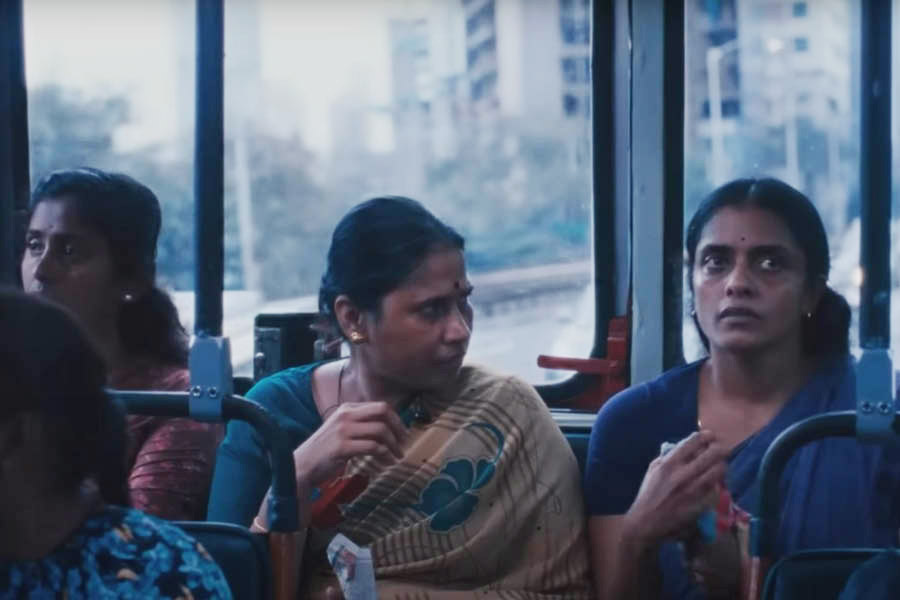Amidst all the bang for bucks that is Bollywood, Payal Kapadia’s All We Imagine As Light speaks louder for its silence. A story of loneliness, intimacy, belonging and, over and above all, friendship, Kapadia’s Cannes Film Festival Grand Prix-winning film is a beautiful respite from over-the-top, in-your-face entertainment.
Set in a rainwashed Mumbai tinged with blue, All We Imagine As Light captures the loneliness of anonymity in the city bustling with people. The images of bodies constantly on the move while disembodied voices talk about their experience of the city are haunting in their depiction of wanting to belong but never feeling like it is home. From the millions going about their lives, the film zeroes in on three women — Prabha (Kani Kusruti) a senior nurse in her 30s, the much younger nurse Anu (Divya Prabha) who is Prabha’s roommate, and Parvaty (Chhaya Kadam), a cook at the hospital where the other two work.
Each woman has her own set of problems and each seems determined to handle it on their own. Whether it is Prabha trying to understand if her marriage with her estranged husband, who left to work in Germany and who she hasn’t heard from in over a year, is over, or Anu who will go to any lengths to keep her relationship with her Muslim boyfriend Shiaz (Hridhu Haroon) hidden from everyone she knows including her family and Prabha. Parvaty, a middle-aged widow, is fighting eviction from her home of 22 years because of lack of papers in her name. It is a stark look at how women’s wants, needs and ownership are narratives controlled by patriarchal notions overtly and covertly, no matter how different the women are in temperament and personality.
When Prabha receives a rice cooker from her husband in Germany, she doesn’t know what to do with it. Later we see her sitting on the floor and drawing the rice cooker into her body in a hug that speaks volumes about how touch-starved she is. No matter how hard Anu tries to hide her relationship, she is branded by the other women because of it but she never asks for help or understanding. When Prabha suggests a lawyer to Parvaty, she says she doesn’t need any help. Each lives in their connected yet isolated islands like every other migrant in the city of Mumbai.
The Mumbai we see in All We Imagine As Light is not the glitzy, glamorous one we see in Bollywood films, nor is it the seedy underbelly that Ram Gopal Varma has made famous. This Mumbai is the Mumbai of thousands of migrants who move to the city looking for a better life and find themselves struggling to belong. It is a Mumbai seen from a distance, even when the camera is right in the middle of a crowd. It is a Mumbai of orange lights of faraway flats and speeding trains, the sounds of the noisy city muffled or drowned out by the haunting notes of the piano.
The whole look and feel of the film changes as the three women take a trip to Parvaty’s coastal village to help her settle in once she decides to leave Mumbai. The rainwashed, blue-tinged city gives way to sunny skies and golden sand, and it feels like the film, along with the protagonists, is taking in a breath of fresh air.
The mood of the film also changes as the women slowly drop their inhibitions and realise that they can trust their connection and that sometimes all one needs is friendship to ease life’s burdens even if it doesn’t solve all the problems. And that is where the beating heart of All We Imagine As Light lies.











